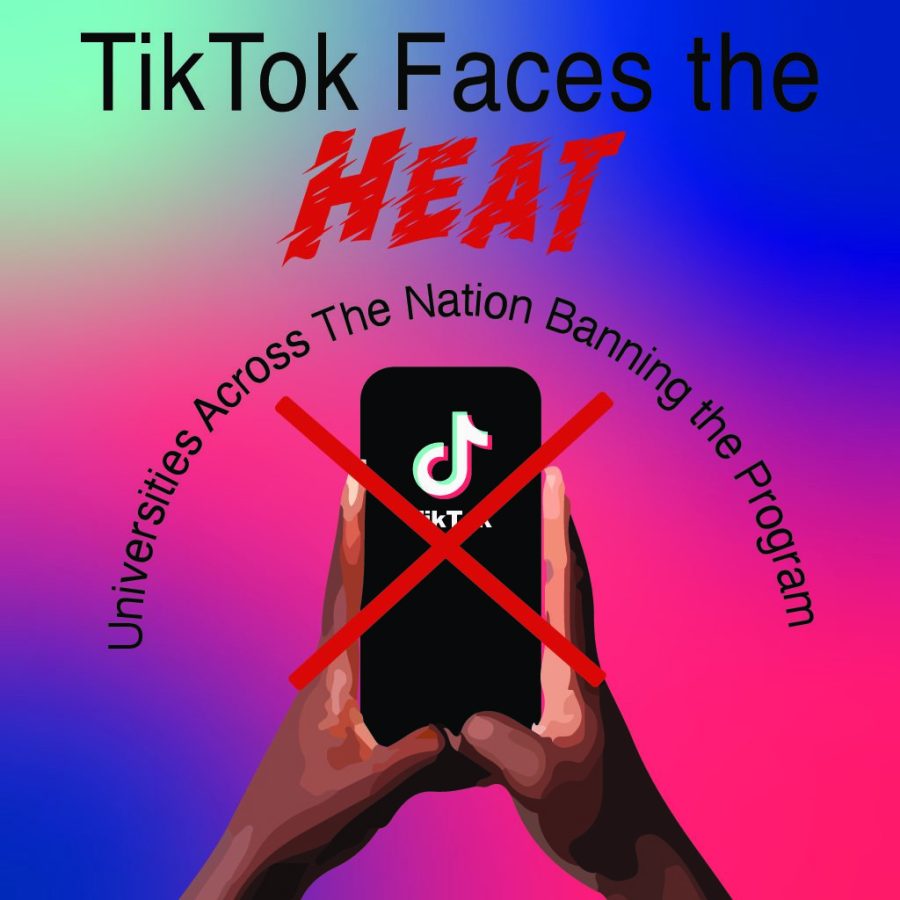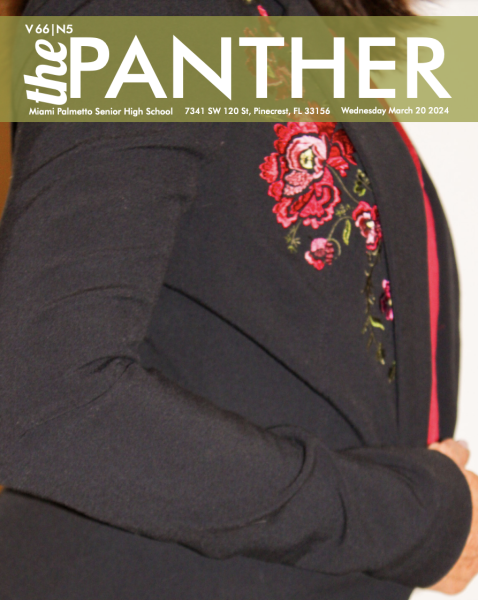TikTok Faces the Heat: Universities Across The Nation Banning the Program
February 16, 2023
TikTok, previously known as music.ly, is a beloved social media platform where one can post videos about anything from a popular dance to funny cat videos. The feed, or “ForYou page,” one receives depends on which “side” of TikTok they are on and typically has to do with their interests.
Users have joked that TikTok listens to their conversations, which shape their ForYou page, showing them topics they had just discussed with a peer. This speculation goes beyond a small joke, however, as investigations have claimed TikTok has a concerning hub of American data that alarms national security.
“…it is a huge concern. It is not even speculation — it says it flat out in the terms and services everyone agrees to. TikTok gathers data on what model phone you have, what internet service you use and your keystroke patterns, so it knows every single thing you type even if it’s in a different app,” University of Texas at Austin freshman Noah Gold said.
Security experts believe that the Chinese-based parent company, ByteDance, shares extensive American information with the Chinese government. The FBI and other cybersecurity experts are certain that TikTok’s platform is a means for them to spy on American citizens and act as a gateway to American data.
As a result of fear of data leakage, many states, such as Maryland, have set forth laws prohibiting both Chinese and Russian technological products out of fear of data leakage.
Florida’s senator Marco Rubio proposed bipartisan legislation to ban TikTok usage in the United States. The Averting the National Threat of Internet Surveillance, Oppressive Censorship and Influence, and Algorithmic Learning by the Chinese Communist Party Act (ANTI-SOCIAL CCP Act) would prohibit the use of all social media companies under the influence of China or Russia.
Since December 2022, state lawmakers like Rubio have put pressure on Apple to prohibit TikTok from being used on government devices, and approximately 20 universities have banned or suggested limited use of the app.
The University of Florida, for example, has strongly encouraged students to stop using the app. The Vice President and CIO sent a letter on Thursday, Jan. 12 to all the students explaining the school’s view on TikTok, hoping to get them to understand the urgency of ending their use of the app.
Several of Texas’ universities have begun to take even further action, with Texas A&M completely banning TikTok and UT Austin attempting to keep TikTok off their networks, despite student wishes.
“…people that live on campus just turn off their WiFi and continue to use TikTok, however, I suppose it is a good start,” Gold said.
It is disheartening for many to see such a widely popular app surrounded by controversy, and many students have adapted to these new rules implemented by universities to keep students safe.
The reactions to the university’s rules on TikTok vary and many will likely undermine university protocols, however, some may be on board.
“Because I heard it is a national security, I already deleted TikTok before it was banned…” said Gold.











